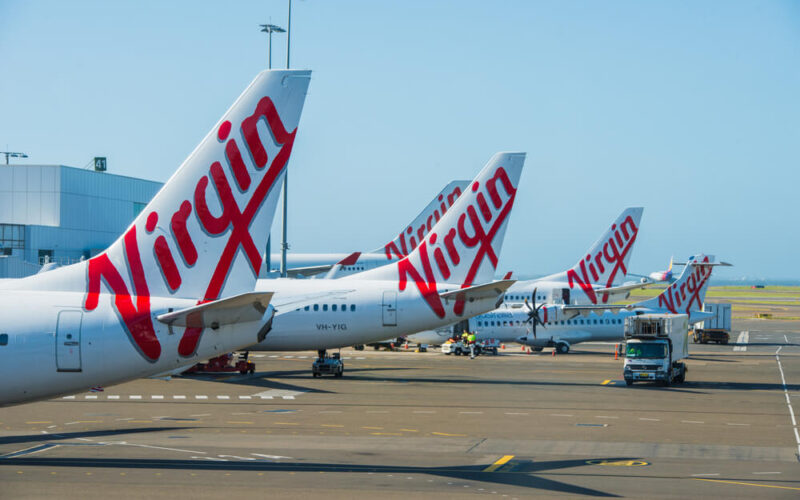Virgin Australia’s reorganization plan under voluntary administration includes mass layoffs, fleet recomposition and discontinuation of its subsidiary Tigerair Australia.
On August 5, 2020, Virgin Australia revealed its plans for recovery from the Coronacrisis. The company underwent voluntary administration, as its revenues were depleted and it carried a lot of debt prior to the crisis.
Despite unfavorable conditions, the Australian company managed to find new investors, namely U.S. based investment firm Bain Capital, willing to provide financial security to the airline in order for it to continue its operations.
Virgin Australia plans to use this time of financial security for building “a stronger, more profitable and competitive Virgin Australia coming out of voluntary administration.” The press release highlights several strategies to help the company achieve this goal, including alignment of costs with the uncertain revenue outlook and reviewing contracts to match their future size.
Furthermore, the airline will remove its ATR-72, Boeing 777, and the Airbus A330 in favor of a simplified all-Boeing 737 mainline fleet.
The company also plans to cut 3,000 employees, hoping to re-hire them after the crisis averts, with an additional 3,000 new jobs on top. For now, long-haul international flights to Los Angeles and Tokyo will also be suspended until the market recovers, leaving Virgin Australia to focus on its core domestic and short-haul international flights for the time being.
But Virgin Australia’s fleet and employees are not the only ones getting a cut as the company announced to be discontinuing operations of its low-cost subsidiary Tigerair Australia.
“Our aviation and tourism sectors face continued uncertainty in the face of COVID-19 with many Australian airports recording passenger numbers less than three percent of last year and ongoing changes to government travel restrictions,” said Virgin Australia Group CEO and Managing Director Paul Scurrah in the statement.
Tigerair’s Airbus A320 aircraft will also leave the company’s fleet going forward.
Even with expectations for pre-COVID-19 travel to return in three or more years, Mr. Scurrah believes that “successful airlines will be influenced by demand and look very different than the way they did previously, requiring long-term capital, a lower cost base and be more focused on providing exceptional experiences through a combination of great people and world class technologies.”
With a new roof of Bain Capital’s $AUD150 billion ($108 billion) of assets over its head to withstand financial shock damage, the company has promised to provide value of travel credits for any delays or cancellations that happened due to administration for all Virgin Australia’s and Tigerair Australia customers.

